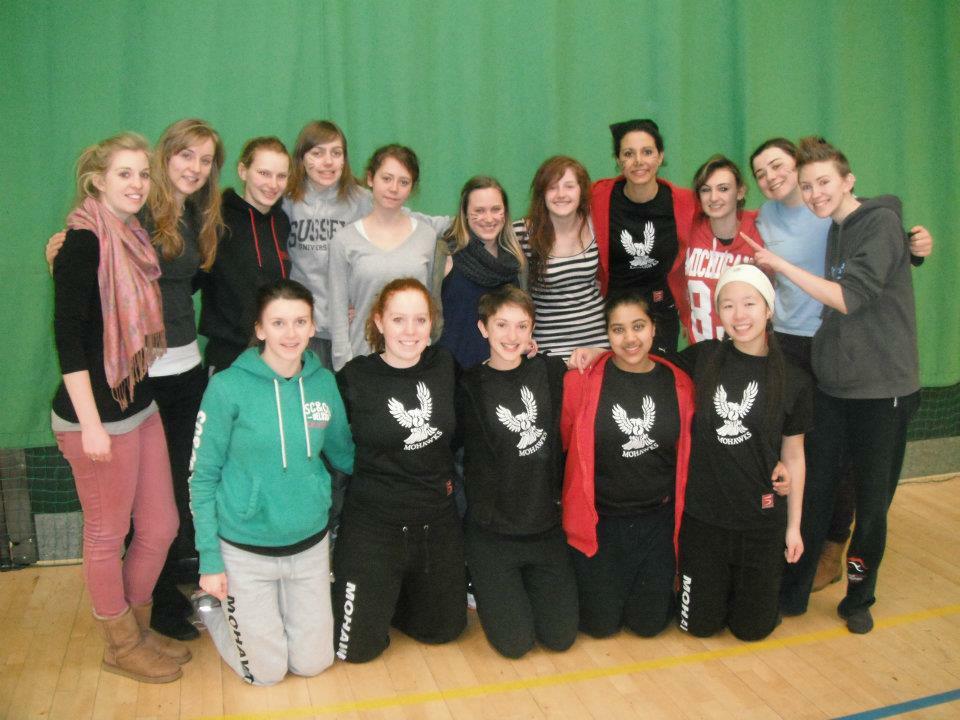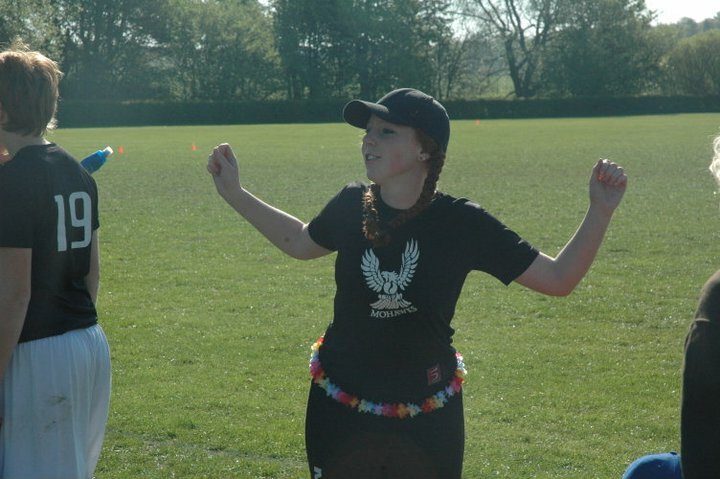“Foul? But I was just punching you in the…
I’m still processing a load of stuff from the weekend – most notably our ‘grudge match’ game, which has given me whole load of stuff to think about in terms of no-contest rules, how to beat drama and why we even play ultimate. Once I have that sorted in my brain, there’ll be a post on it for sure. I also owe Lucy a post which I promised a few weeks ago – so don’t panic, boss. It’s coming too.
This one’s a pretty brief post, about boxing out, position and bidding – because something this weekend reminded me of it.
This weekend, I went to jump for a disc and found I couldn’t – due to my mark running into the back of me as I took my approach steps.
Last year, I was punched in the face (accidentally, obviously) while jumping to catch a break-side knife indoors.
These two things have a few points in common: both times I had position on my defender (through the thrower’s efforts, not my own, I hasten to add) and both times my foul call was responded to with “I was just going for the disc”.
Oh, and both times, it ended up being contested and sent back.
First thing I want to make very clear – I do not view these pretty standard and clear fouls being contested as bad spirit on their part. This isn’t a post about how to recognise when you’ve fouled someone, or even a more useful one (possibly) about boxing out. This is a post about how to deal with that one phrase which is the derailer of almost every contested foul conversation.
“I was just going for the disc” is possibly the least useful phrase to use in a call, for starters. Of course you’re going for the disc – we’re playing ultimate. What’s the other explanation of what you’re doing? “I wasn’t going for the disc, but you were, so I thought I’d hit you”? No-one thinks that. No-one calls foul thinking that (or at least I really hope they don’t). Do me a favour – stop using that phrase.
Mini-rant over – this post is really about how to talk about the foul in order to explain to the defender that they have fouled you. In both of the calls I mentioned above, I found myself unable to convinvce the other person of this. And it’s because I didn’t mention the magic words – the words that are the bane of the “just going for the disc” approach: I had position.
This is the key point. When you and your mark collide, because you’re both running at the same speed to the same point, someone will say “we were both just going for the disc”. What they mean is, “we were going for the same space, and got there at the same time”. When you have position and your mark clobbers you, and they say “I was just going for the disc”, what they mean is “I was trying to get the disc, but you were in the way”.
Position is about having your body in the way, about giving your mark no other option if they want to ‘go for the disc’ successfully than to foul you. When you get fouled while boxing someone out, you haven’t ‘failed’: you’ve achieved your goal – the disc is yours. Unless they contest it.
Ah.
So, how do you convince them? I haven’t quite got it down yet – but I think the key point I’ve failed to raise in conversations like those above is that of position. If you can explain to them that yes, you understand they were going for the disc, but unfortunately you had put yourself in a position where they could not do so without fouling you, then by persisting in their explanation of “just going for the disc” by their own admission, they’ve just fouled you. They couldn’t go for the disc without fouling you – and they went for the disc.
Maybe that’ll work, maybe it won’t. Go test it out for me.


